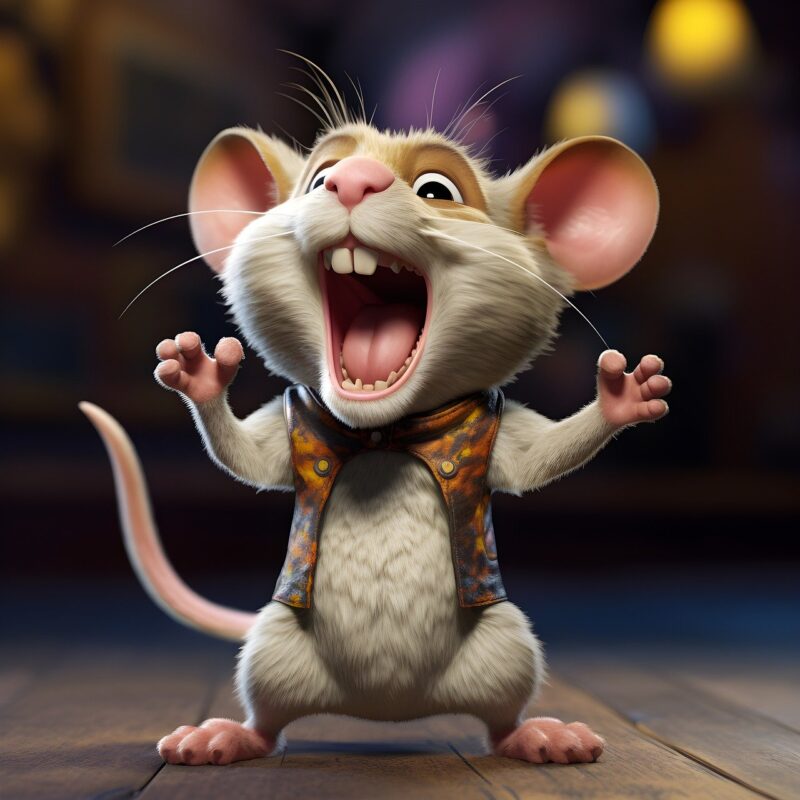Cartoon Classics: The Hidden Messages and Life Lessons in Our Favorite Shows
November 18, 2024

Cartoons have been a staple of childhood entertainment for generations. From the colorful realms of Looney Tunes to the adventurous escapades of Scooby-Doo, animated shows have not only captivated audiences with their humor and artistry but have also imparted valuable life lessons and hidden messages. While we might primarily view these shows as pure entertainment, many cartoons encourage critical thinking, showcase moral lessons, and promote social values.
1. The Power of Humor: Laughter as a Learning Tool
Humor is a pivotal element in cartoons that makes them appealing to viewers of all ages. It lightens difficult subjects and makes complex ideas more digestible. Take, for instance, shows like “Animaniacs,” where the creators juxtapose slapstick comedy with educational content about history and culture.
Humor serves not just to entertain but to engage young minds, allowing them to process information in a relaxed setting. It fosters creativity as kids are encouraged to think outside the box and see the world through a humorous lens.
Moreover, humor sometimes masks deeper meanings that might be uncomfortable when explicitly stated. For example, the whimsical characters in “The Chipmunks” often find themselves in predicaments that touch on themes like friendship and teamwork, often delivered with a punchline.
2. Friendship and Teamwork: A Lesson from the Gang
Several cartoons, especially those featuring ensemble casts, emphasize the importance of friendship and teamwork. Shows like “Teenage Mutant Ninja Turtles” and “Gravity Falls” illustrate how a diverse team can overcome challenges through cooperation.
These stories highlight the concept of unity in diversity, teaching audiences that everyone has unique strengths that contribute to the greater good. The relationships between characters mirror real-life friendships, filled with misunderstandings, compromises, and laughter, providing viewers with relatable and valuable insights into social interaction.
For instance, when the Ninja Turtles face adversities, their ability to collaborate fuels their success, instilling a sense of camaraderie that resonates with children and adults alike.
3. Overcoming Adversity: Strength in Perseverance
Cartoons also have a remarkable way of portraying triumphant narratives that emphasize persevering through adversity. The character arcs of beloved figures like Pepe Le Pew show relentless pursuit in the face of repeated rejection.
In shows like “The Little Engine That Could,” viewers learn the values of resilience and self-belief in overcoming obstacles. These stories serve as motivational guides, showing that effort, persistence, and belief in oneself are pathways to achieving one’s dreams, no matter how unattainable they initially appear.
Often cloaked under a façade of humor, these themes resonate strongly, providing comfort and encouragement to young viewers and instilling resilience as a key life skill.
4. Moral Choices: Right and Wrong
Many classic cartoons tackle moral dilemmas, helping children learn the distinction between right and wrong through storytelling. Shows like “Arthur” and “The Magic School Bus” often put characters in situations that require them to make significant decisions, allowing viewers to learn about ethics and personal responsibility.
When characters face consequences for their choices, it serves as a powerful lesson in accountability.
“SpongeBob SquarePants,” for instance, explores various moral situations through exaggerated antics, depicting how greed, envy, and deception lead to unfavorable outcomes. By engaging with these scenarios, children develop a sense of ethics, learning to navigate their moral landscapes in real life.
5. Social Issues: An Engaging Perspective
Apart from personal morals, cartoons frequently shine light on social issues, offering young audiences a chance to engage with topics like diversity, environmentalism, and community service. In shows like “Avatar: The Last Airbender,” viewers are exposed to themes of war, oppression, and redemption through a fantastical lens.
While children may initially tune in for the action-packed adventures, they ultimately learn about empathy and understanding complex societal issues. “The Fairly OddParents” touches on environmental conservation and responsibility, albeit with humor and relatable scenarios.
These shows encourage children to think critically about the world around them and inspire discussions about social responsibility that can have lasting impacts.
6. Identity and Self-Discovery: Embracing Uniqueness
The journey of self-discovery and acceptance is a prevalent theme that many cartoons explore. Characters such as Lisa Simpson in “The Simpsons” often challenge societal norms, demonstrating the importance of staying true to oneself.
Many shows convey messages about embracing individuality and understanding one’s identity in a constantly changing world. Cartoons like “Steven Universe” and “She-Ra and the Princesses of Power” beautifully portray themes of acceptance, love, and embracing differences, particularly in terms of gender and sexuality.
By witnessing characters embrace their unique identities, audiences feel empowered to embrace their individuality and support others in doing the same, fostering an atmosphere of acceptance and respect.
Conclusion: More Than Just Entertainment
As we reflect on the cartoons that have shaped our childhood, we come to appreciate that they offer much more than mere entertainment. The humor, storytelling, and playful characters are gateways to profound life lessons that resonate long into adulthood.
These classic shows encapsulate a world where creativity meets moral education, providing timeless messages that continue to inspire generations. As our children engage with these animated tales, they transform not only their understanding of the world but also their place within it. So next time you tune into your favorite classic cartoon, listen closely; beneath the laughter lies a wellspring of wisdom waiting to be discovered.






